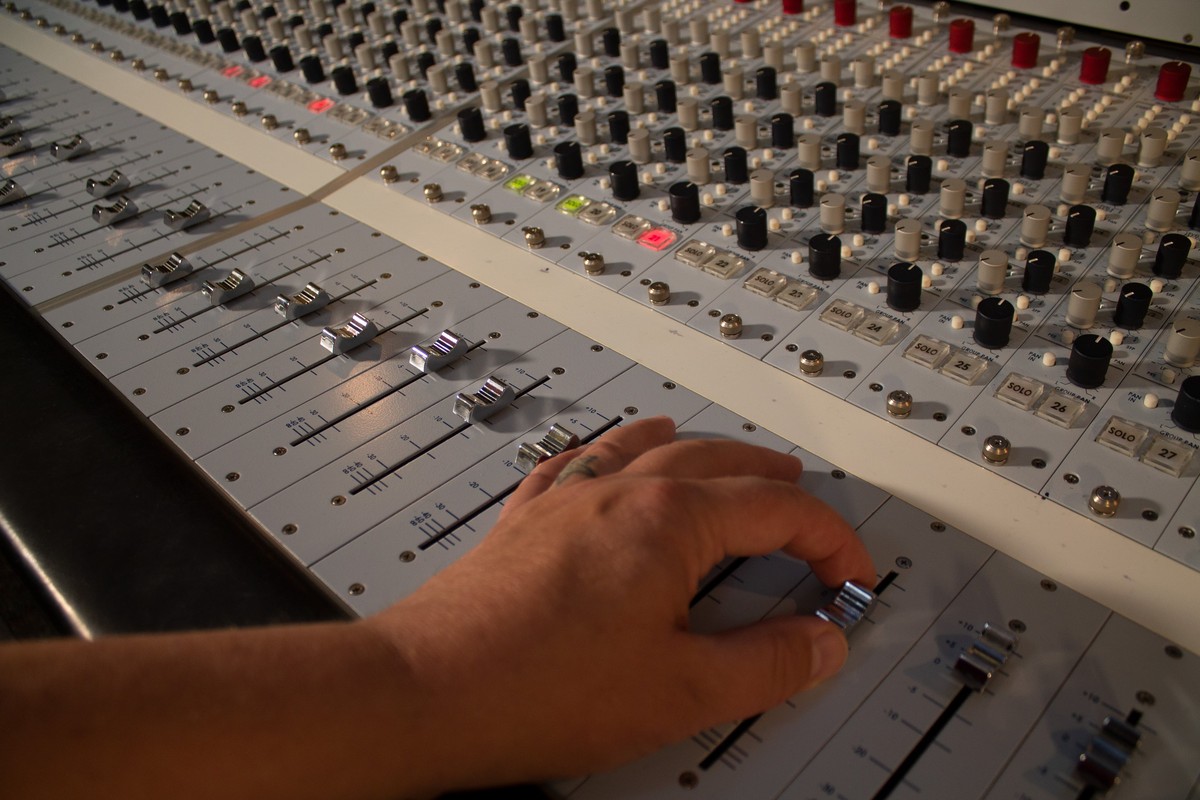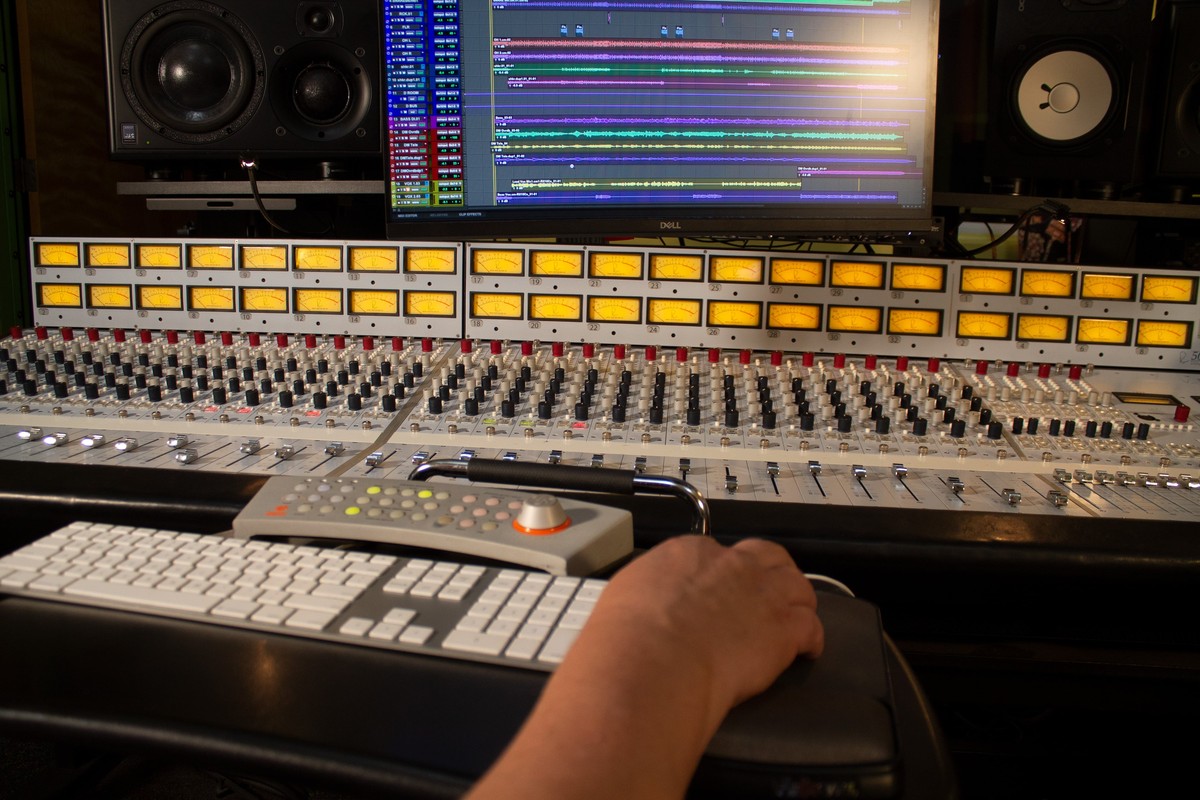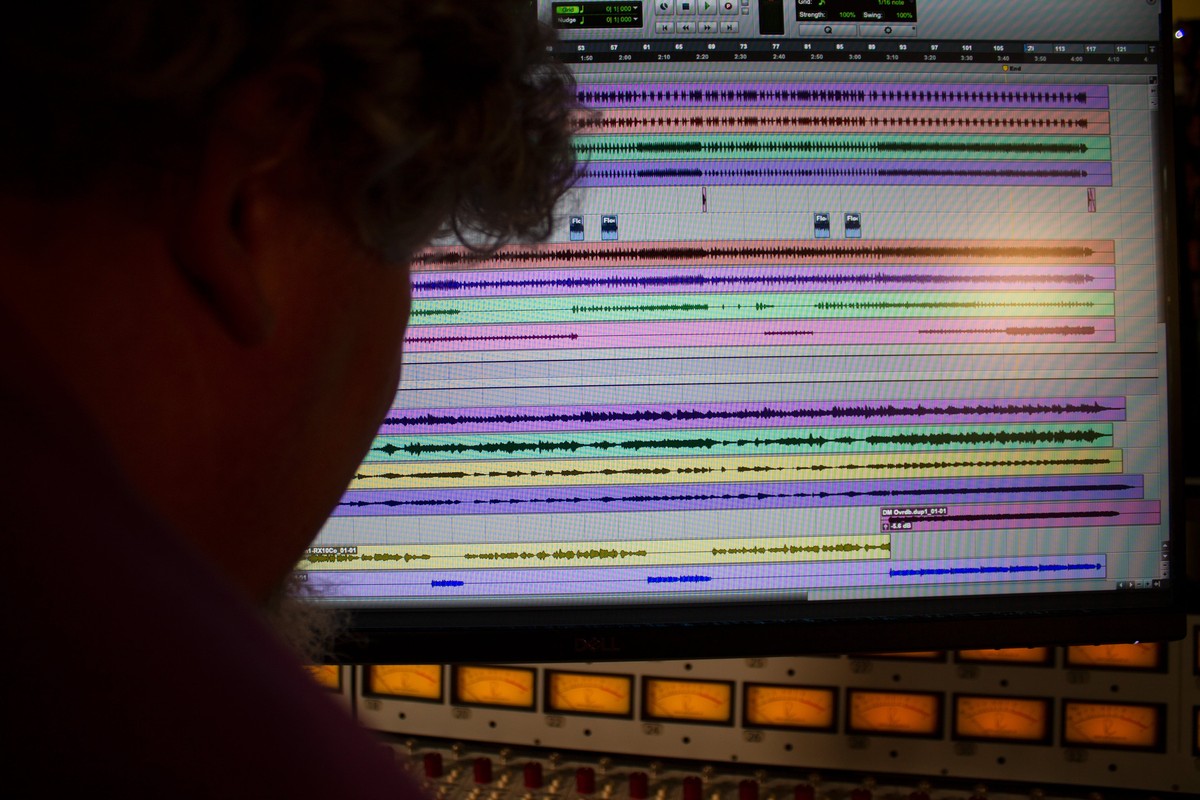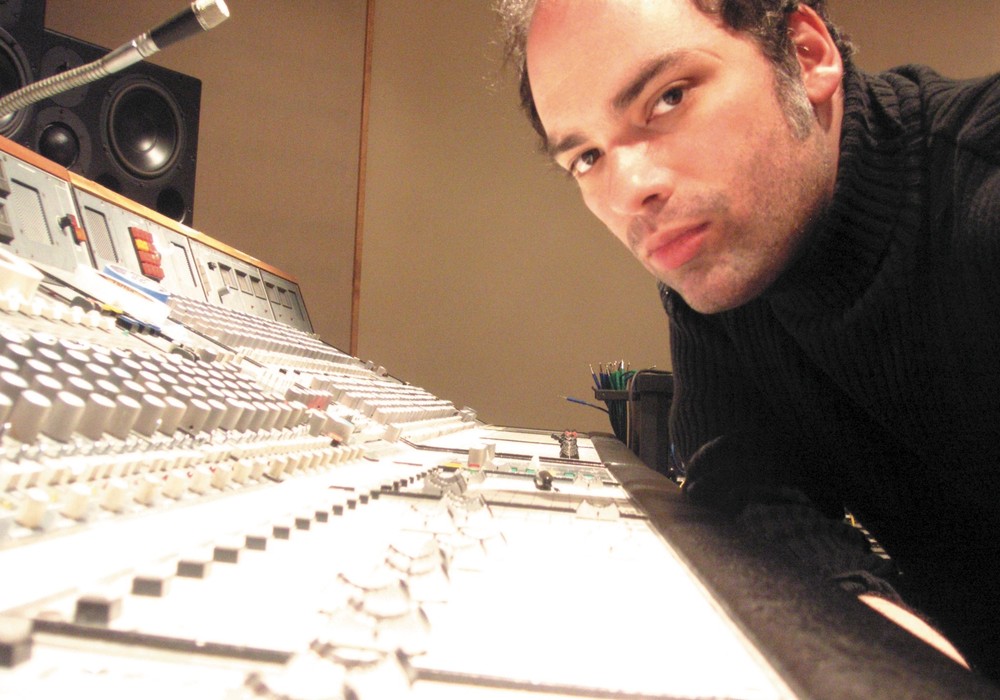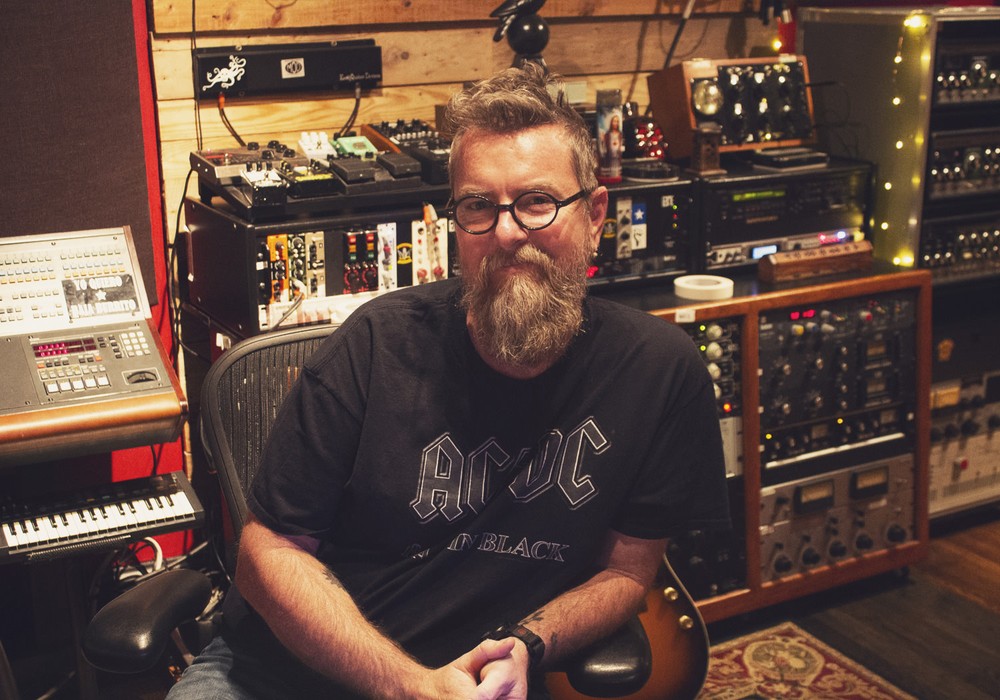I do a lot of my mixing unattended these days, and most of these notes are orientated to help with this type of process, even though most of these ideas will also help on attended sessions. When I'm mixing with the artist (and/or producer) in the control room with me, I can easily turn around and ask questions, try out ideas, and quickly get a mix on the right track. Some projects are so complex that the artist and/or producer really should be there for the mixing process. Maybe they don't need to hover over the mixer, but they should be ready to explain ideas and sounds desired so that the mix can get done to their satisfaction. I love doing unattended mixing, but I can attest that most of my attended mixes never need revisions, as we can get to the desired place much easier and sign off on a final mix sooner than remote mixing allows. On the other hand, remote mixing can be much more cost effective, allows us all to work with people from around the world, and – for the mix engineer – it keeps studio scheduling flexible and fills in the gaps in the calendar.
Mental Preparedness
To anyone sending out a song to be mixed: Don't overestimate what the results will be. If your project is tracked well it's likely that an experienced mix engineer will recognize that and simply further define and balance your project without drastically changing it. If your session is a haphazard home recording with a bit of charm, it's likely the mixes will come back somewhat cleaner and balanced (but it's unlikely it'll magically sound like Coldplay or Steely Dan). A great mix engineer examines what they have been given to work with, hears the potential within, and looks for the best way to present it. They can also accept guidance, and it's through good communication and the back-and-forth of revisions that the best results will occur.
How you approach this part of your project is important. If you are coming at the mixing in a defensive manner and treating every slight change as an affront to your artistry, I can guarantee your mixer will pick up on this and not feel allowed to deliver the quality of work they would like to. A great mixer needs some degree of free rein – or very concise instructions – in order to do their best work. An alarmed email from a client after the first round of mix deliveries usually indicates that the client really wanted to mix the project themselves, and that they most likely will not accept any other vision of their music. Remember, you hired a mix engineer for their skill level, as well as for the fact that they have mixed thousands of songs and know what works in the real world. You are also asking for their creativity and care. If you push all of that away from the beginning by being a micromanager, I can guarantee you won't get as good of mixes from your engineer. Put some trust in the person you’ve chosen to hire, loosen the reins a bit, and see what magic might possibly come your way. If you inhibit the process, you’ll never know what you could’ve had. Remember, this is only the first round. Nothing is set in stone.
Picking a Mix Engineer
In my opinion, if you aren’t picking your mixer from the credits of an album (or song) you enjoy the sound of, then you are making a big mistake. You might have heard about an engineer through other channels, but I would hope you are eventually looking for someone who has worked on music you actually like and listen to. This is the best resume and calling card for an engineer. There are many online platforms full of "mix engineers," and lots of them that will work for insanely low rates. If that's your choice, then good luck to you. Did they mix albums you own? Do they work on similar music to yours?
Don't be afraid that just because someone has mixed a few records that you like that they are "unreachable" and out of your price range. I've interviewed hundreds of engineers all over the world, and every one of them will seriously consider any job if they have open time and the pay is appropriate. I know many pros with big album credits that are not as busy as you might think, and their rates are totally fair. Look them up, take a chance, and drop a line! Every mix engineer worth hiring has a website with (at least) contact information available. A few even have managers; don't be scared off by this either!
How Will They Mix This?
How an engineer works – whether they mix “in the box” (ITB: In a computer via DAW with plug-ins, etc.), on an analog console, or with some hybrid of analog summing and various outboard gear – could be a determining factor in who you choose. But I have to request that you ask yourself this simple but important question: Does it matter? The only thing that does matter is that you get mixes back that you are happy with. While I am a sucker for using a great analog mixing console, just like most of my peers I can make a great mix in a computer with no audio hardware. I would recommend focusing more on the person and the quality of the mixes they do than to worry about how they get these great results.
In some cases, you may wish to only pick from engineers that will be mixing in the platform you are working in. See Jesse Ray's notes on this. Why? Many times, exporting all the files out and importing into a new DAW or session loses lots of little automation tweaks, panning, plug-ins, and more that is hard to replicate in the new DAW. Another advantage of this is that the mixer can repair bad edits between audio clips and such that might get rendered (set in stone) with file export scenarios. If your mix is relying on numerous plug-ins and effects it might be far better to have someone spruce up your mix instead of rebuilding it. You will need to confer about DAW and plug-in compatibility – none of us seem to own the same exact sets of plug-ins!
Initial Communication
One difficult factor I run into quite frequently is keeping track of a project's name. Initial emails are usually with an individual, who might represent a group, band, label, management, or project. Often the client forgets to initially tell me the name of this group or such, and it's not until I'm receiving some anonymous download link that I see the project's name, and then I sit there wondering which person this is from and what it's for. If it's not a job simply under your personal name, use the band/project name in every communication. Beyond this possible confusion, first communications are invariably about rates and availability.
Money
Before anything begins, find out the cost of your mix job. The mixer has figured out a rate and time expenditure that works for them, and most will have a document or email they can send out that clearly explains all the charges for their services. I used to bill by the hour, but the open-endedness sometimes scared clients off. Once I realized that I usually spent a similar amount of time on mixes, and by noting what situations took up extra time, I came up with a "per song" rate with additional caveats (extra costs) based around song length, track count, expediency, and extra revisions. In some cases, a mixer may want to see what they are dealing with first and then send a bid. Some people will provide unlimited revisions of a mix, and others will include two or three in the initial cost. Importantly, make sure you agree on what will be delivered. Do you need instrumentals, vocal up and down passes, and various submixes? Do you want the actual DAW sessions? This is all factored into what the mix engineer will charge for their services. Someone with many hit records under their belt costs more than a person just starting out, but most of us in the middle price accordingly and are likely offering up some good deals!
Time
Availability is a tricky one to discuss these days, as many mixers end up working ITB (or in a recallable manner), and many projects might be tackled per day – it's far less about scheduling and all about workload management. Perhaps the more important question is about turnaround time. For myself, analog console mixes are scheduled and will occur on a certain day, but my "lower cost" ITB mixes will happen when I have free time (possibly bumped by attended sessions, life events, and magazine editing). Clarity about turnaround time is important. If you need your mix "right now," then you need to find out what that actually means to yourself and your mix engineer. Keep in mind that you will likely want some mix revisions, so don't make your deadline Friday at 5 p.m., ask for changes at 11 p.m., and expect them by midnight (this does happen). Remember, if your engineer is holding a date to do a mix and never receives your files to mix from because you were not ready, they may charge you regardless.
Extra Work?
You're hiring someone to mix your music, but does it also need what Zach calls "premixing"? (See below.) I personally offer up a mix "deal" that does not include editing drum timing, tuning vocals and instruments, or sorting and picking through untold tracks of percussion "ideas" to see what to use (though I will, for an extra fee.). This guideline keeps the session on track and on budget, but some songs will need more production and/or editing than this. Some engineers will include doing this work in their cost, but you should clearly communicate what you expect if this is needed. Getting a note after my first mix that begins, "We still notice some lead vocal pitch issues," when I was not asked to tune anything (and didn't hear anything I thought was that out of line) simply derails the whole mix process. Every technical job or extra production decision asked of your mix engineer is also using up time and mental energy that could be used for creative and artistic decisions while balancing your mix. "Fix it before the mix" should be the new saying.
Rough Mixes
I cannot stress this enough: Please be honest with yourself and your mixer about how attached you are to the rough mix. This will save both of you time, frustration, and potential disappointment. In order to help you clarify what you love about the rough mix, think carefully about the following things: Are there balances of instruments and vocals that cannot be changed? Was a lot of time spent compressing, EQ'ing, and automating every single track and you are expecting that the mix engineer will need to follow every nuance? If so, tell the mixer that this is the case. If the rough mix doesn't really present anything to reference (vocal and solo levels, dynamics, drum sounds), then tell the mixer this instead. I have chased oddly balanced mixes only to find out after sending the first mix that no one liked the rough. I have also ignored a finely tuned rough because no one told me to reference it closely!
An informative rough mix should indicate a general balance of instruments, rough effects ideas (reverb on vocals or roomy drums), vocal levels, and featured solos or instrument melodies. The rough mix should usually not be extremely mix bus compressed, EQ’d, or limited, as this can throw off the perception of intended balances.
Prepping Time
You'll need to prepare your sessions for mixing. Back in the old days, we'd get a reel of tape and (hopefully) some track sheets. Nowadays, remote mixing usually comes via an uploaded folder of audio files generated from a DAW (digital audio workstation) or a whole DAW-based session. The majority of professionals seem to still work in Avid Pro Tools, and won't mind getting the whole session, as-is, from a client. The other method, especially if tracking has been done on a different DAW than what the mixer uses, is to export consolidated audio files that all contain the same start point. These can easily be dropped into a DAW for mixing and will all line up properly. There are also protocols like OMF and AAF that allow transferring sessions between different DAW platforms. I've used these a little bit, however I prefer to avoid them if possible as it seems I'm always rebuilding the session despite the protocol. Which method is better? It really depends.
For many higher budget/profile sessions, like Jesse Ray and Ben Kane discuss (Keeping the Plug-Ins and Mixing as Production), the mixer will be sent a full DAW session and be expected to carry on with all the plug-ins and automation intact, and their job is to improve on where the mixing is at. This also usually requires the mixer constantly purchasing plug-ins; thus, the cost for this way of working has to be at a certain point. If you're working with a mixer in this fashion, you can skip to "Initial Mixing Notes" right now!
Personally, when I mix, I'm generally eliminating most of the existing plug-ins, routing, automation, and more. When I open up other people's Pro Tools sessions it usually will take me longer to figure out what the heck they were doing than to simply undo everything and build a new mix. I'm also working with a lot of self-recordists, smaller labels, and (usually) sessions with lower track counts.
If you are delivering consolidated audio files to a mixer to drop into a new session, what do you send? Technically, you should send files at the given sessions' original sample rates, bit rates, and file types, but programs like Apple Logic make this information difficult to find! Mainly, do not send files that are lower sample/bit rates than the tracking sessions' format! But what should these files be?
Stripped Bare
"How much has been undone?" is the terrifying question I ask myself when setting up a new mix for a client. Maybe the person sending me this removed all the guitar amp plug-in simulations, thinking I'd physically re-amp everything (yikes) or that I’ll use my own amp sims. (Leaving me to question what they want. Distorted? Clean? Effects?) Or, conversely, are all the vocal tracks swathed in a crummy-sounding reverb that accents all the vocal clicks, pops, and nasty ess sounds? It's a fine line between too much processing that ties the mixer's hands versus too many "undone" tracks that sounded great in the rough mix but have now been presented dry, with none of the cool tone ideas left. Bottom line: If you have tracks that are working magically in your rough mix, then send them the way you have processed them. If you have any doubt about whether your processing is good or not, you can send processed and unprocessed versions of these tracks (label them as such and put in different folders). Tell the mixer which tracks you think they should initially mix from. Mixers do not have time to compare all your tracks one-by-one before mixing each song; instead, they'll compare them if and when they need to.
Be aware that most mixes have multiple instruments playing through a song. Any "special" spot in a rough mix where a certain track gets louder, pans across, goes into a reverb, or what-have-you – but IS NOT specified elsewhere or printed/baked in on a track – can easily be missed by the mix engineer when referencing your rough mix. In many cases, it would take listening to a track 10 or 12 times, carefully following each instrument, vocal, and element of a drum kit while making highly detailed, time-based notes in order to begin to replicate your rough mix in this manner. A guessing game like this could eat up hours of your mixer's time, and it is highly unlikely to ever happen outside of special archival/reissue work. This is why you may wish to send prepped tracks or stems instead of raw tracks. But how "prepped"?
I have mixed completely awesome songs where the drums I was sent were just a pre-mixed stereo track. There are times when sending stems like this is the right thing to do, because something so unique is happening that your mixer will never get back to that same sonic space. If they are a great mixer, they will also make that stereo track sound even better in ways you never imagined. Some tracks almost always sound better completely raw, unprocessed, and as recorded: Like acoustic drums, upright bass, most vocals, real piano, and acoustic guitar/mandolin/banjo/ukulele. Special little effects, like a vocal that has a crazy echo in one spot, are also worth printing (maybe independent of the main track) and sending to your mix engineer. Not only will this "special" track re-create your original intent, but it will also remind the mixer that this spot needs an echo in case they wish to create their version.
Be careful of sending tracks to mix from that that are different from what was used to make the rough mix. This might sound obvious, but I have chased a sound that was no longer in the files I was sent to mix from, such as different synth patches or even "new" takes of instruments that sounded completely different from the ones used in the rough mix. Make a new rough mix, or at least send a note explaining what is going on and why. This has eaten up hours of my mixing time and it is very frustrating!
Believe me, all of this information above is important. I have had tracks sent to me that were so "undone" that I could not figure out how to even get near to what was happening in the rough mix. That means I have had to pass on this work or suggest a much higher mix rate. Needless to say, I'd really rather not pass on work, and higher rates scare clients off.
Prepping Tracks
You cleaning up tracks can save time for the mixer (which can also potentially save you money). If you know how to edit audio well, then clean all edits and punches. (Be sure to add crossfades!) Additionally, be sure to get rid of unwanted noise before and after a desired part begins. With vocals, make sure there are no clicks, plosives (popped P sounds), or chopped-off breaths. Don’t get rid of all breaths! Check any drum edits for rhythmic problems, bad punches, bad crossfades, and chopped off cymbal decay. Be careful not to clean up tracks too much. I've received vocal tracks with no natural intake breaths, breaths cut off that sound weird, dead air between every word, and bits of words clipped off. Many times, I get sent consolidated vocal tracks with so many bad edits I have to ask for fixes. What we "see" in waveform view in a DAW is not the most accurate representation of what is actually on a track. I work in full spectral view when cleaning tracks (in iZotope RX), and it's amazing the subtle nuances of vocal tracks that frequently gets removed, like little "after breaths" when a phrase ends. It can also help the mix engineer if at least a spot of background noise is left in, in case they wish to remove using noise reduction software (maybe at the top or tail, and noted). Remember, the lead vocal is usually the most important part of a song, and if it's mangled by bad edits, terrible tuning artifacts, and background noise you're off to a rough start.
The worst and most common problem with tracks I'm sent are clicks from edits or punch-ins where there was no cross fade applied (or it was done improperly). Many times, drum edits have many issues with this, as well as hits popping up within cross fades that should have been tighter. Improper bass guitar edits frequently generate giant click spikes if not handled properly as well. Another common mistake are audio files that are exported at incredibly low levels. I've had to bump tracks up 20+ dB just to begin mixing. It always seems to work, but it's likely the tracks suffered from lower fidelity due to this mistake. The other side of this coin are tracks that have been exported completely blown out loud and clipped; that's even more difficult to repair.
Outside of what we discussed above in "Stripped Bare," do not digitally process tracks with plug-ins unless you are completely certain this needs to be done and you know you can do it well. I have spent hours repairing poorly gated drum tracks, improperly tuned vocals, and poorly compressed recordings when the original, raw files would have been much easier to work from.
Initial Mixing Notes
Sending notes about your project can help the mixer, but overcommunication is also a real thing, and it can be a problem. I have gotten notes that don't actually say anything of importance or are of any use to me. Writing up four pages of mix notes per song in a folder full of multiple documents leaves the mixer more overwhelmed rather than aided. Recently, I received a spreadsheet doc that color-coded tracks as groups and provided succinct info such as, "These are the main rhythm guitars." How much faster do you think I got to work? On the other hand, I frequently put up the tracks and start working without reading a single note about the song, and I'd bet I'm not alone in this. I'll look at the notes later to see if I'm on the right track, or I'll check if there's something that seems odd, like two solo instruments at the same time.
What do you really need to tell the mixer? Can elements be deleted, edited, or moved in time? Do you want the mixer to decide when the tambourine comes in and out of the mix? Are there sounds you tracked that you think are causing issues? Telling me that the “main guitar is too big and wooly" allows me to dive in and change the tone, remove frequencies, virtually re-amp, or even remove sections of this unruly guitar. If there is a cool noise that you want to keep – but it's one that a mixer might possibly think is extraneous – then make a note of where it is (track/time) and why you wish to keep it. Count off stick clicks, guitar noises before a solo, and talking or rustling at ends of songs are common situations where this arises. Think of the sounds at the top of Pink Floyd's song "Wish You Were Here" (leading into the acoustic guitar licks) as an example of this. The mixer has to know what you want and don't want in your song, right?
Other People's Mixes
Sometimes called "reference mixes," this is a tough part of mixing. Personally, I'd prefer to let the tracks tell me where to go, and then I can take it from there. But there are cases where it can help. Someone can tell me, "More like My Bloody Valentine than The Cure," and I'll know to bury the vocals in delays and fun reverbs. I've also had specific album and song choices given to me that sent my mixing in a direction that the client didn't want at all. Don't reference a close-mic'd, dry '70s album if you want to make a reverb-laden epic masterpiece. A mixer with experience has worked on and listened to a large library of music, and they will recognize influences and sounds in your music that you might have forgotten about or even tried to deny. Using these as touchstones can help to create a much better mix than if they'd been told to mimic something quite unlike the actual tracking sessions' results.
Evaluating New Mixes
Set up a system to A/B (compare back and forth) the new mix against your original rough mix (match both at similar levels). Make sure there is no processing on the output or left/right bus if using a DAW! Listen on decent-quality speakers and headphones; ones that you are familiar with and are used to hearing music reproduced on or that you use for tracking.
You may hear many sources in the new mix much clearer than you ever have before. Be ready for this. Sometimes people will ask if they can record new vocals or fix timing when they get away from the murky, masking working mix they'd been tracking into. If you are especially attached to your rough mix, play both of these for someone less involved, and ask if one sounds better right off the bat. First impressions in music are important.
Don’t get hung up on specific panning or effects that you may have used on your rough mix. Is the new mix sounding better overall? Is it more effective? Does it have a wider apparent range of frequencies and dynamics? I ask my clients, "If you think the vocals are too loud, please reference against a number of other commercially released songs before requesting a change." Your music does not exist in a vacuum.
Do not be concerned about “dead air” before or after the final mix. This can be easily dealt with at mastering. Same with the final fade on a song. If it’s too long, mastering can adapt it. If it’s too short, you'd need to remix the song to make it longer!
Remember that this mix is not mastered, therefore it is not as loud as commercial releases (yet).
Mix Revision Communication
Once you have received and evaluated your first initial mix (I label them v1, v2, etc.), you'll need to send some notes to the mix engineer. If they've given you protocols, follow them closely. Do not expect your engineer to scour and collect notes from 12 different emails from four people, a couple notes on Instagram, and three text messages sent at 3 a.m. I ask that I receive a single document or email from a single person/email account per revision round (if it was a batch of songs delivered at the same time, this holds too). This keeps the workflow manageable on my end, and it also eliminates the sometimes contradictory notes that multiple persons and emails can generate. If you are sending notes relating to ALL the songs in a mix, make that very clear. Make your notes concise and focused. "There's a 'tick' sound at 3:45," is far better than, "Something makes an odd noise in the third chorus." Does the mixer even know when the third chorus is without listening back? Some notes can be inscrutable or helpful; this really depends. "The mix is too bright," isn't as good as, "We notice the cymbals and vocal ess sounds pop out a lot."
Use extreme clarity when sending mix revision notes. Missing words and garbled text frequently stall me when revising mixes. Using phrases, like "bring out" (Make louder? Remove?) or words with vague meanings (“warm”?) leaves the mixer baffled and unsure.
This revision communication can easily feel unintentionally antagonistic at times. I've reviewed many emails before sending only to add, "I'm enjoying mixing your songs. Do not take any of the bluntness above to mean I'm irritated with you!" Email always feels a little dry and pointed, and sometimes a Zoom or phone call can smooth out any potential confusion. Then again, do you want your mixer spending time on the phone or mixing your track?
Final Mix?
Hopefully, all of the work has paid off by now and you're happy with your mixes. When the back-and-forth of mix revisions is complete, always tell your mixer that you are signing off. I have had hundreds of clients leave me hanging, and I am left wondering if my mixing for them is done. Make sure you have proper files to download and send to your mastering engineer, and that you have picked the proper revisions or versions. Store the files online and on several hard drives for safekeeping. And always make sure to label the folders with the project and dates. Now is the best part: You are ready to put the music out into the world!
It's a Wrap!
Keep in mind that this is a process with many moving parts and high expectations. Mixers know that you are invested in your work and want to give you the best results. Picking the right help for every part of a recording project is important, and a mix engineer that gets drawn into your work will add more than you ever anticipated and help you to bring out your best music. By picking a great mix engineer, and with a bit of back and forth with clear communication, you'll end up with mixes you enjoy and can be proud of. 


